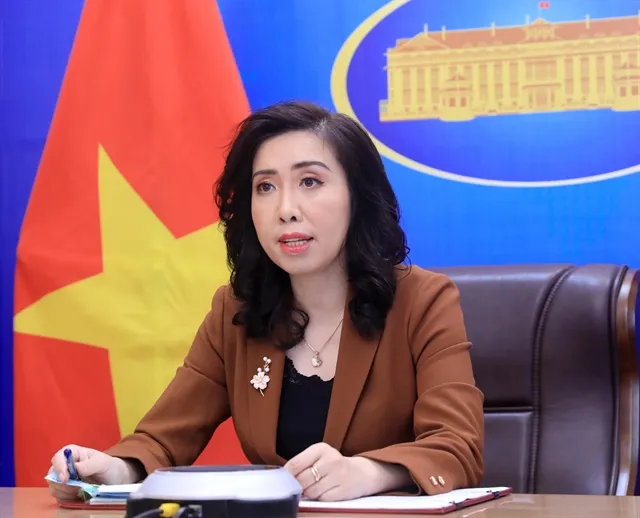
During the regular press briefing held virtually from Hà Nội, foreign ministry’s spokesperson Lê Thị Thu Hằng said as the COVID-19 pandemic continues to unfold in a complicated manner, and is set to be a long-term issue that cannot be completely controlled, the Vietnamese Government has shifted from its initial Zero COVID-19 strategy to ‘safe and flexible adaptation, and effective control of COVID-19.
“This means that we would simultaneously conduct COVID-19 prevention and control efforts, in tandem with socio-economic recovery,” Hằng said.
“As part of these efforts, the vaccine passports, the green cards, and the digital health certificates strategies are possible solutions to help gradually reopen the economy, especially the tourism and service sectors.”
The country has sealed off its border against most foreign arrivals since March last year and only allowed in a limited number of exceptions such as foreign executives, businesspeople, diplomats, highly skilled workers, and technicians, along with Vietnamese citizens repatriated from overseas.
Recently, the ministry submitted to the Government a set of criteria for recognition and use of vaccine passports, especially with regards to the type of vaccines recognised by Việt Nam.
The diplomat noted that Việt Nam would recognise all COVID-19 vaccines that are cleared for emergency use by the World Health Organisation (WHO), US Centre for Disease Control (CDC), the European Medicine Agency (EMA), and the Ministry of Health of Việt Nam.
Currently, WHO has approved seven COVID-19 vaccines – Moderna, Pfizer/BioNTech, Johnson&Johnson’s Janssen, Oxford/AstraZeneca, Covishield (Oxford/AstraZeneca formulation, made in India), Sinopharm’s Vero Cell, and Sinovac’s CoronVac; the USCDC approved three vaccines – Moderna, Pfizer/BioNTech, Johnson&Johnson’s Janssen; the EMA also has given authorisation for these three vaccines, plus the Oxford/AstraZeneca.
Việt Nam’s health ministry to date has given conditional approval to a total of eight types of vaccines – Moderna, Pfizer/BioNTech, Johnson&Johnson’s Janssen, Oxford/AstraZeneca, Sinopharm’s Vero Cell along with the UAE version Hayat-Vax, Sputnik V, and Abdala.
The Vietnamese Governmental leaders have fundamentally agreed with the criteria for vaccine passports as submitted by the foreign ministry, Hằng said, adding that further details and information on this issue will be made publicly available.
In addition, the Ministry of Culture, Sports and Tourism is also working with relevant authorities to study and build a pilot plan to welcome fully vaccinated international tourists to Việt Nam, which will be implemented in Phú Quốc Island (Kiên Giang) in the near future, she said.
The press also raised questions about whether Việt Nam is in talks for supplies of the very promising COVID-19 drug Molnupiravir, developed by the US-based pharmaceutical company Merck and its partner Ridgeback's Investigational Oral Antiviral, as many other countries including in Southeast Asia have announced orders or plans to secure treatment courses.
Hằng said that Việt Nam has seen vaccines and medications as the deciding factors to help contain the pandemic and help us adapt to the new normal, the Ministry of Foreign Affairs has directed its representatives overseas to closely follow the development of COVID-19 vaccines and drugs and to inform and assist the Ministry of Health in getting access to potential products.
“The importance of and cooperation to produce COVID-19 medications is one of the central mandates of the Government’s working group on vaccine diplomacy and would continue to be strengthened in the future,” the spokesperson said.
The health ministry has already included the antiviral drug in its latest revision for COVID-19 treatment protocol. The drug has seen some use in HCM City.




















